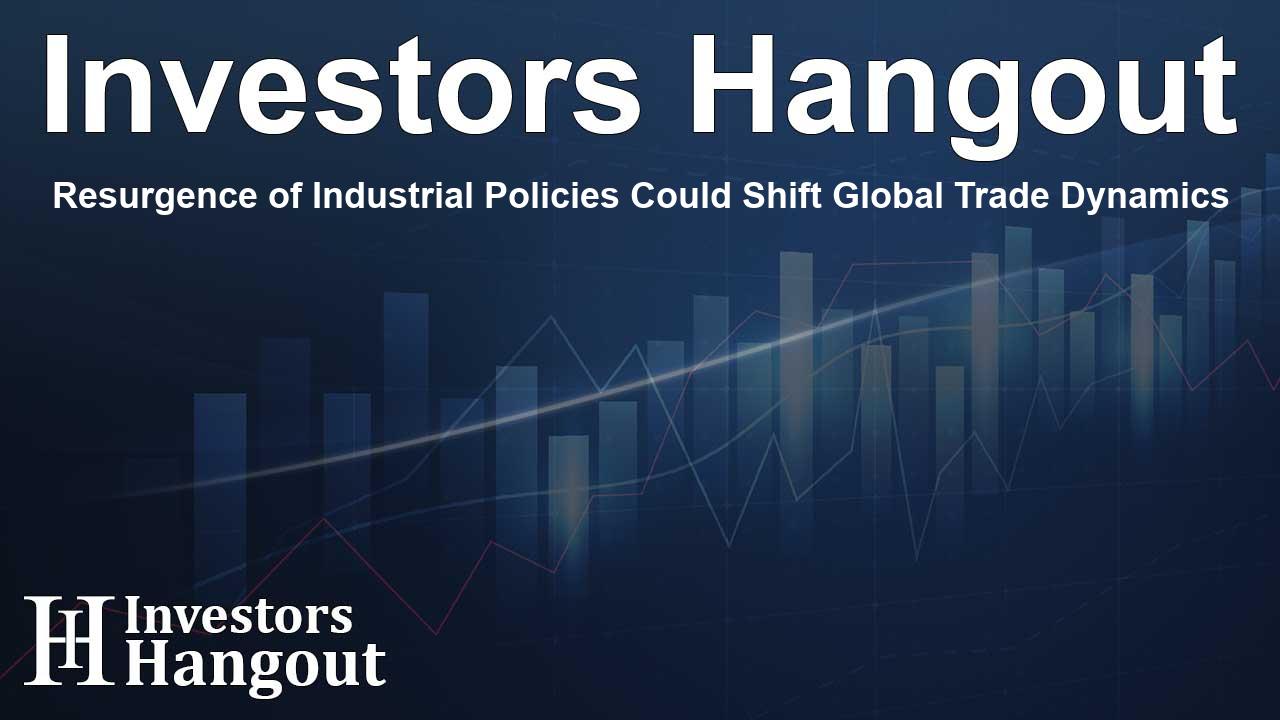Resurgence of Industrial Policies Could Shift Global Trade Dynamics

Impact of Protective Industrial Policies on Global Trade
In a world increasingly leaning on protective industrial policies, international cooperation faces significant challenges, particularly for developing nations. According to a recent report from the European Bank for Reconstruction and Development (EBRD), there has been a notable resurgence of strategies designed to either bolster or protect domestic interests. This trend, which has emerged prominently over recent years, indicates a shift that could have lasting impacts on global trade dynamics.
Understanding Industrial Policies
The EBRD defines industrial policy as a strategy employed by governments to influence their economy's structure. This can include a range of measures such as government-backed financial support, incentives for local industries, and various forms of subsidies. However, the report highlights a concerning pattern: nearly 90% of such interventions in advanced economies and EBRD regions tend to favor local over foreign markets. This goes against the ethos of global trade, leading to potential inequalities.
Reasons Behind the Resurgence
Identified drivers of these policies include a push towards a greener economy and emulation of practices established by major economic players like China and the United States. Public sentiment has also shifted towards advocating for increased government intervention in economic activity, particularly after recent global economic upheavals. Beata Javorcik, the EBRD's Chief Economist, stresses that the inclination towards industrial policy is reflected in not only richer nations but also in emerging markets that are rediscovering these strategic tools.
The Risks of Fragmentation
The implications of such policies are significant. While they can serve as tools for economic development, poorly managed strategies may lead to a lack of fair competition. Javorcik warns that industrial policy might inadvertently drive the world towards a state of fragmentation, rather than collaborative growth.
Unequal Impact on Developing Nations
For lower-income countries, the increasing adoption of protective measures raises alarms. Without strong administrative frameworks, these nations are often more susceptible to resorting to extreme measures such as export restrictions or outright bans. Such tactics could exacerbate corruption and further deter potential foreign investment, undermining the very benefits these policies aim to achieve.
The Role of Technology in Industrial Policy
This year's report marks a first for the EBRD's office of the chief economist, leveraging Artificial Intelligence to analyze data derived from the Global Trade Alert database. The integration of advanced technology in research signifies a shift in how economic insights are gathered and processed. This modern approach highlights the need for an agile response to the rapidly changing economic landscape driven by globalization, automation, and the rise of AI technologies. As countries navigate their economic paths, striking a balance between protectionism and open trade remains an ongoing challenge.
Frequently Asked Questions
What prompted the resurgence of industrial policies?
The resurgence is driven by various factors, including the need for a greener economy, emulation of major economies, and a shift in public opinion towards supporting greater state intervention.
How do these policies affect global trade?
Protective industrial policies can lead to fragmentation in global trade, as they often favor domestic industries at the expense of foreign competitors, disrupting fair competition.
What risks do lower-income countries face with these policies?
Lower-income countries, which may lack robust administrative capabilities, risk adopting extreme measures like export bans that can lead to corruption and deter foreign investment.
How did the EBRD compile this report?
This year’s report is the first by the EBRD’s chief economist using Artificial Intelligence to analyze extensive data from the Global Trade Alert database.
Why is careful management of industrial policy important?
Careful management of industrial policy is crucial to maintain a level playing field in international trade and to prevent economic fragmentation that could further polarize the global market.
About The Author
Contact Addison Perry privately here. Or send an email with ATTN: Addison Perry as the subject to contact@investorshangout.com.
About Investors Hangout
Investors Hangout is a leading online stock forum for financial discussion and learning, offering a wide range of free tools and resources. It draws in traders of all levels, who exchange market knowledge, investigate trading tactics, and keep an eye on industry developments in real time. Featuring financial articles, stock message boards, quotes, charts, company profiles, and live news updates. Through cooperative learning and a wealth of informational resources, it helps users from novices creating their first portfolios to experts honing their techniques. Join Investors Hangout today: https://investorshangout.com/
The content of this article is based on factual, publicly available information and does not represent legal, financial, or investment advice. Investors Hangout does not offer financial advice, and the author is not a licensed financial advisor. Consult a qualified advisor before making any financial or investment decisions based on this article. This article should not be considered advice to purchase, sell, or hold any securities or other investments. If any of the material provided here is inaccurate, please contact us for corrections.
